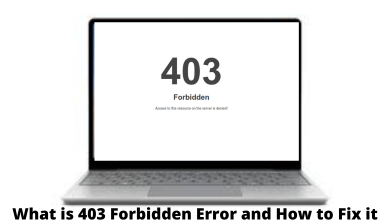The world we live in is quickly changing, and technology is right at the heart of this revolution. With more work being done using computers and other smart digital devices, digital literacy has become vital.
Digital literacy, by definition, is the ability to utilize information as well as communication technology to retrieve, assess, and share information. You’re said to be digitally literate if you can type, text, compose and produce digital content using technology. While this kind of literacy is important, it does not replace other forms of literacy.
Contents
- Why is Digital Literacy Important?
- 1. It Makes It Easy to Comprehend and Leverage Technology
- 2. Helps Empower Children
- 3. Makes Things Easier for People with Disabilities
- 4. Helps Navigate the Online Space Safely
- 5. Improve Work Efficiency
- What are the Essential Categories Under Digital Literacy?
- 1. Photo visual Literacy
- 2. Information literacy
- 3. Reproduction Literacy
- 4. Branching Literacy
- 5. Socio-emotional literacy
- How to Acquire Digital Literacy
- 1. Observation
- 2. Take an online course
- 3. Watch tutorials
- 4. Short Courses
- Conclusion
Why is Digital Literacy Important?
Steps to know why digital literacy is important.
1. It Makes It Easy to Comprehend and Leverage Technology
In most modern schools and workplaces, digital literacy is essential because everything you do revolves around it. For students, the majority of their school work is now online. Digital literacy also means having the right digital skills to leverage basic technology and be able to maneuver the online space. In the U.S., schools have made it mandatory for students to learn digital skills that enable them to do their academic work effortlessly.
2. Helps Empower Children
Digital literacy is not only for adults but children as well. In today’s digital world, children have a huge online presence and are, therefore, overly exposed to the dangers of digital illiteracy. Children depend on the internet to learn, socialize, recreate, play online games, or do basic research. Hence, denying your children access to digital literacy is like denying them basic life skills.

3. Makes Things Easier for People with Disabilities
People with special needs, particularly those in school, often have hard time learning skills that make them worthy competitors to their peers. Digital literacy can help people living with disabilities access personalized resources more conveniently. For a lame person, for example, while engaging in physical activities with others may be a problem, they can interact with their peers through e-gaming. With digital skills like typing, they could also contribute to social discussion boards online without facing discrimination.
Now more than ever, the online space has become a hunting ground for fraudsters. Many people that fall victim to fraudsters are older folks who lack basic digital literacy. Nonetheless, older folks are not the only victims of cybercriminals; children are also prime prey. Many predators, particularly on social sites, always take advantage of naive internet users. If you’ve met someone online and are unsure about their intentions, you can always check their real identity on Nuwber.
5. Improve Work Efficiency
The future of work is a trending topic in almost every industry. Professionals across all industries are adopting the use of computer software to make work easier. For digitally literate folks, performing tasks on a computer is effortless. Tasks like creating and managing spreadsheets, screen sharing during a conference call, and using cloud-based applications are skills that improve workplace efficiency.
What are the Essential Categories Under Digital Literacy?
These are the essential categories under digital literacy.
1. Photo visual Literacy
This refers to your ability to derive meaning from images. Images sometimes tend to have hidden meanings, and knowing how to interpret an image will improve your ability to think critically. If you’re good at deriving meaning from photos and images, you can easily improve your critical thinking and creative writing skills. This skill also requires knowing how and where to find proper images for different uses.
2. Information literacy
This form of literacy encompasses your ability to access and locate information online. Knowing where to find information online and how to use search engines is insurmountable. With countless websites offering misleading information, it is easy for a digitally illiterate person to fall for scammers or misinformation.

3. Reproduction Literacy
It involves utilizing digital technology to create or augment content to make it unique. There are different ways to learn these skills.
4. Branching Literacy
This form of literacy commonly involves your ability to comprehend and navigate the digital space. To perfect this kind of literacy, you should be able to locate a site, know how to navigate the site and return there later on.
5. Socio-emotional literacy
If you can navigate the online space and know what to do or not do on any online forum, you have socio-emotional literacy.
How to Acquire Digital Literacy
Know from the steps below, how to acquire digital literacy.
1. Observation
The easiest way to learn something is by watching someone else do it. Learning this way is not only cheap but also quite effective. When you watch someone do something, you can ask questions for clarification or explanation. Peer-to-peer boot camps are an excellent place for acquiring digital literacy through observation. Also, you can take advantage of seminars organized by experts in a particular niche.
2. Take an online course
Digital skills are not difficult to learn, and many experts are ready and willing to help you learn such skills. Taking an online course often involves paying a small fee for the training. Nevertheless, there are several good free courses if you don’t have money to spend on the premium ones.
3. Watch tutorials
Thanks to YouTube, Udemy, and other similar platforms, learning a digital skill can be as easy and fast as you make it. Navigating these platforms is also effortless and intuitive for anyone who has a smartphone or knows how to search online. Learning through tutorials is efficient and offers great flexibility because you can rewatch the video as many times as you need to perfect the skill you’re looking to learn.

4. Short Courses
Given how fast today’s workforce requirements are changing, many working-class individuals will need reskilling in the foreseeable future. Upskilling programs are often in-depth and more hands-on. They are an ideal package for anyone seeking to advance their skills within a short period.
Conclusion
As the world continues to advance further away from how we know it, the need to acquire digital skills couldn’t be greater. However, the good thing is that you can gain digital literacy in several unique ways. These skills are easy to learn for children and elders alike. Digitization is like a train that has already left the station, don’t try and stop it; otherwise, it will run you over. On the contrary, you should endeavor to be a part of this beautiful journey at all costs.



